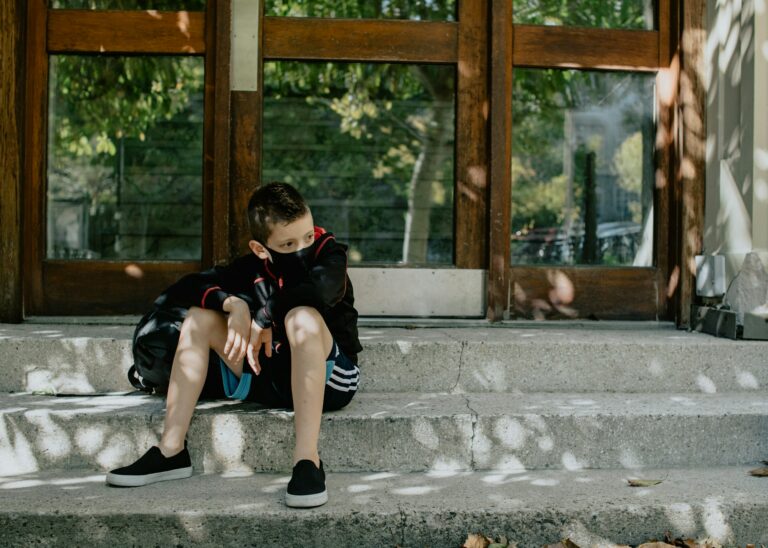Trying to understand Parental burnout can sometimes feel like racing through a maze with walls shifting at every turn—always a new hurdle, another expectation, an unseen pressure that builds. If the weight of parenting ever leaves you winded, questioning your energy, your patience, your very identity, you are not imagining it. Imagine standing at the crossroads of endless demands—childcare, work, social pressures, and those relentless inner expectations. Parents often wonder, “Is this just stress, or is something deeper happening?” Recognizing parental burnout, with all its physiological, psychological, and social ripples, opens doors to real solutions. Through a scientific lens, we’ll explore what defines this phenomenon, its symptoms, risk factors, and, most importantly, the pathways toward resilience—blending empathic advice, validated medical insight, and actionable strategies.
What Does It Mean to Understand Parental Burnout?
Defining Parental Burnout: A Distinctive Psychological Syndrome
To truly understand Parental burnout is to grasp it not as a passing moment of exhaustion, but as a chronic syndrome rooted in relentless caregiving. Unlike traditional stress or major depressive disorder—which tends to permeate every corner of daily life—parental burnout has its hub squarely within the parenting role. This difference is more than semantics. The Parental Burnout Assessment (PBA) and Parental Burnout Inventory (PBI) have illuminated four core features:
- Persistent emotional, physical, and mental exhaustion (imagine a fatigue that sleep barely touches)
- Emotional distancing from your own children
- A sense of being fed up or profoundly weary of parenting
- Comparing your current self to a “better parent” you once were
Parents sometimes report feeling disconnected, as if on autopilot, watching your own life through a foggy lens. Science describes this through the Balance Between Risks and Resources (BR2) Theory: burnout erupts when parental demands habitually outweigh personal, social, or institutional resources.
Assessment Tools: From Science to Self-Reflection
The lexicon surrounding parental burnout has evolved with research, borrowing concepts from occupational burnout. Recognizing patterns—exhaustion, decreased parental efficacy, cynicism about parenting—helps draw clear boundaries between transient stress and long-term burnout. Validated tools like the PBA or PBI capture these symptoms with precision (and for those who crave objectivity, structured self-assessment can reveal patterns you might overlook in daily life).
Why Is Parental Burnout Prevalent—and Why So Stigmatized?
In a world where parenting ideals seem to multiply faster than laundry piles, understanding why parental burnout is so common is no simple feat. The mere act of admitting overwhelm can feel taboo, almost like flunking an unspoken test. How often do parents feel compelled to hide their struggle, afraid a slip will be seen as evidence of inadequacy? Shame and fear of judgment create an invisible wall.
Consider this:
Running. Always running—between therapies, school pickups, cooking, homework that stretches into the night. No time left to breathe. No space to fail. Does this narrative sound familiar? Society’s shifting norms haven’t eased the burden—they’ve compounded it.
Social Expectations and Family Transformation: A Complicated Equation
The last four decades have redrawn the social landscape of the family. The move from traditional gender roles to new paradigms of shared responsibilities, plus advocacy for children’s rights… On the surface, progress; under the surface, a tangle of increased expectations. Scientific guidance, social media, and the “right” way to parent (organic snacks, enriching activities, ideal schools) fill every moment. The net effect? An often-punishing standard, especially for mothers still carrying a heavier mental and practical load. Striving for parenting “perfection” becomes an exhausting, unattainable goal, sapping emotional energy and reducing resilience.
Causes and Risk Factors for Parental Burnout
Individual and Psychological Contributors
Do some personalities carry more risk? The answer from psychology is clear: yes. Gender, personality traits like perfectionism or neuroticism, and pre-existing conditions such as anxiety, depression, or alexithymia (difficulty identifying emotions—all scientifically documented) raise the risk dramatically. On the flip side, self-compassion and autonomy act like shields, buffering parents from overload. One parent’s challenge becomes another’s puzzle, shaped by personality and psychological resilience.
Family Dynamics and Social Environment
Burnout risk soars where support sinks. If a parent feels conflict, detachment, or chronic struggle with their child—or with a partner—exhaustion deepens. Isolation (whether physical or emotional) acts as a silent amplifier, especially for single-parent households or parents raising children with complex needs. Each added child raises the stakes. Parents of children with chronic illnesses, behavioral disorders, or from adoptive families face additional expectations; the scientific consensus supports the connection between increased caregiving load and the likelihood of parental burnout.
Socioeconomic constraints—limited resources, too little access to supportive services—tighten the vise. Here, understanding Parental burnout must be rooted in the layered pressures that families face, moving beyond surface solutions.
Cultural and Societal Influences
Global research underscores stark contrasts: individualistic cultures, with their emphasis on self-reliance, deliver less community support but impose greater achievement-based expectations. Burnout rates are higher. In contrast, collectivist cultures foster shared caregiving, buffering stress. Add inconsistent public policies—limited parental leave, hard-to-access mental health care—and the environment becomes a breeding ground for parental exhaustion. The steady barrage of “new science” and “optimal methods” paradoxically fuels anxiety, as every milestone morphs into a test.
Symptoms and Warning Signs
Emotional, Cognitive, and Behavioral Features
Classic Parental burnout doesn’t sneak in quietly; it arrives with a constellation of symptoms:
- Emotional exhaustion, unrelieved by rest
- Diminished enjoyment or satisfaction in the parenting role
- Cognitive changes: trouble concentrating, forgetfulness, “autopilot” routines
- Emotional distancing—a parent becomes present, yet not truly engaged
- Behavioral shifts: social withdrawal, decreased patience, unhealthy coping mechanisms
Physical Manifestations and Impact on Family
The body pays the bill for chronic stress. Common medical complaints include headaches, gastrointestinal discomfort, insomnia, persistent fatigue—a spectrum well-documented in medical literature as related to chronic stress syndromes. For the parent-child bond, the shift is profound: less affection, heightened conflict, cycles of guilt and perceived failure, especially in mothers weighed by mental load. If unaddressed, escalation includes frequent partner arguments and an overall decline in household well-being.
Guilt, Shame, and the Myth of the “Perfect Parent”
Persistent myths—burnout signals “bad parenting,” or that it’s just a rough patch—keep many silent. So does confusion between burnout and depression; both share fatigue and withdrawal, but their core origins and manifestations diverge. Stigma fences in suffering and delays intervention, amplifying emotional isolation.
The Ripple Effect: Parental Burnout’s Toll on Families and Children
Parental Health: Mental and Physical Fallout
Medical science draws clear lines: burnout erodes immune function, disrupts sleep, feeds anxiety and depression, and chips away at resilience. What once felt manageable becomes overwhelming as even trusted coping strategies lose traction.
Children’s Well-Being and Development
Children are sensitive radars. Emotional detachment, reduced warmth, and fluctuating parental attention are not invisible to them. The research speaks volumes—children of burned-out parents face increased risk of anxiety, loneliness, and behavioral problems. Harsh or neglectful interactions can undermine emotional development and self-esteem.
Broader Family and Social Consequences
Family unity fractures as arguments and tension multiply. Social withdrawal by overwhelmed parents depletes communal networks. The wider societal toll: increased healthcare use, lower work productivity, and economic impact—all highlighting why to understand Parental burnout is to recognize it as both a personal and public health matter.
All family types—single-, adoptive-, special-needs, and same-sex parent households—are vulnerable. Resilience demands support, not impossible standards.
How Can Parents Recognize Parental Burnout?
Self-Assessment: Science and Introspection
Validated scales (the PBA, PBI, Maslach Burnout Inventory, Shirom-Melamed Questionnaire) offer structured insight, but insights also emerge from daily check-ins. Noticing persistent fatigue, growing distance from your child, or recurring doubts about your parental capacity? Journal observations, discuss with loved ones, or practice mindfulness—such acts can unearth telling patterns before they snowball.
Professional Guidance: When and How to Seek Help
When symptoms escalate or persist, connecting with a family doctor or mental health clinician becomes indispensable. Differential diagnosis—separating burnout from depression or anxiety—protects families from missed treatment options. Evidence-based interventions (CBT, mindfulness, specialized parenting support, group therapies) are emerging as gold standards for intervention. Resources abound for complex cases, including multidisciplinary approaches and tailored workshops.
Prevention and Coping: Building Real-World Resilience
From Social Connection to Self-Care
Isolation fans the flames. Intentional connection—with family, friends, neighborhood groups—helps “lighten the load.” Support groups built around honest exchange (in person or online) give practical strategies and a sense of normalcy. Delegating household or childcare responsibilities is not weakness; it is a science-backed strategy for energy conservation.
Embracing “Good Enough” Parenting
Research supports it: perfectionism is not sustainable. Compassion for yourself, acceptance of mistakes, and celebration of small victories build longer-lasting motivation and warmth—creating a healthy relational atmosphere.
Communication and Boundaries
Setting boundaries is not just recommended—it is protective physiology in action. Clear discussion of roles and needs, realistic prioritization, cutting out unnecessary obligations, and consistent personal time all sustain balance. Consistent routines counter chaos and reinforce family health.
Effective Interventions and Long-Term Management
Therapeutic Approaches and Empowerment
Structured therapy (CBT, mindfulness, emotion regulation) provides tangible relief and teaches skills transferable to everyday parenting. Parenting skills workshops rooted in contemporary developmental science offer actionable advice. Well-designed peer support (digital or in person) can transform isolation into connection.
Lifestyle Changes, Mindfulness, and Expression
Integrating mindfulness, creative outlets, intentional rest, and physical activity form a standard medical prescription for stress recovery. Balanced nutrition, enough sleep, and movement protect brain and body from the corrosive effects of chronic stress and fatigue.
Ongoing Support and Resilience
There’s no “one and done” solution. Sustained self-checks, evolving strategies, and embraced support networks fortify against recurrence. Reducing stigma—through conversation, education, and institutional recognition—pays dividends in public and family health.
Parental Burnout: Key Differences from Other Challenges
While Parental burnout mimics elements of general stress, depression, compassion fatigue, or anxiety, it remains defined by its direct relation to parenting—the exhaustion, emotional distance, shift in self-identity as a parent. Everyday stress is short-lived and less specific; depression envelops every aspect of life; compassion fatigue deals with caring for suffering in general; anxiety may exist with or without a parenting link. Accurate diagnosis anchors the right support.
Building Lasting Family Resilience
Strengthening resilience begins with open communication, realistic standards (not perfection), and readiness to access help—whether through professionals, supportive peers, or reliable educational resources. Positive parenting values—empathy, validation, healthy boundaries—protect both parents and children. Shared routines and delegated responsibilities foster both flexibility and security, allowing families to thrive even in the face of modern pressures.
Key Takeaways
- To understand Parental burnout is to recognize it as a unique health challenge with well-documented medical, psychological, and social contours.
- Accurate self-assessment and validation empower early intervention, sidestepping the spiral toward severe exhaustion.
- Family environment, social network, culture, and policy profoundly influence both risk and recovery.
- Medical research underscores that strong support, realistic expectations, and professional guidance shield against and relieve burnout.
- Stigma and myths remain, but embracing open discussion reshapes both family and societal outcomes.
- Resilience is achievable: a journey combining science, support, and compassion—no parent is meant to weather burnout alone.
- For personalized health guidance and free child wellness questionnaires, discover the Heloa app—a science-informed resource at your fingertips.
Questions Parents Ask
How can parental burnout affect the relationship with my partner?
Parental burnout doesn’t just impact your well-being—it can also influence the dynamics within your couple. When a parent feels overwhelmed and exhausted, communication may become more strained, and misunderstandings can increase. Emotional distance or irritability linked to burnout might make it harder to connect with your partner in a positive way. Rassurez-vous, recognizing these changes is a first step. Opening up about your feelings, even in small moments, and carving out time for shared activities—however simple—can help rebuild understanding and closeness. Seeking support together may also strengthen your bond and create a more supportive family atmosphere.
Are there early warning signs of parental burnout that I can watch for?
Absolutely, being attentive to early indicators can make a real difference. Some common warning signs include feeling persistently drained, difficulty finding joy in everyday parenting moments, or increased irritability and impatience with your children or partner. You might notice withdrawing from social interactions or feeling disconnected from your role as a parent. These signs are important signals—listen to them with kindness, without judgment. N’hésitez pas à prendre du recul, à discuter de vos ressentis avec des proches ou des professionnels, et à mettre en place de petites pauses pour votre bien-être.
What can I do if I don’t have a strong support network?
It’s completely understandable to feel isolated at times, especially if your extended family or friends are not nearby. Building a support network can take time, but there are ways to feel less alone. Many parents find valuable encouragement through online communities, local parenting groups, or by reaching out to healthcare and childcare professionals. You might also identify small, practical supports in your daily life—such as neighbors, school networks, or activity groups. Rappelez-vous, demander de l’aide n’est pas un signe de faiblesse, mais une preuve de force et de soin pour vous-même et votre famille. Every small connection can make a big difference over time.









